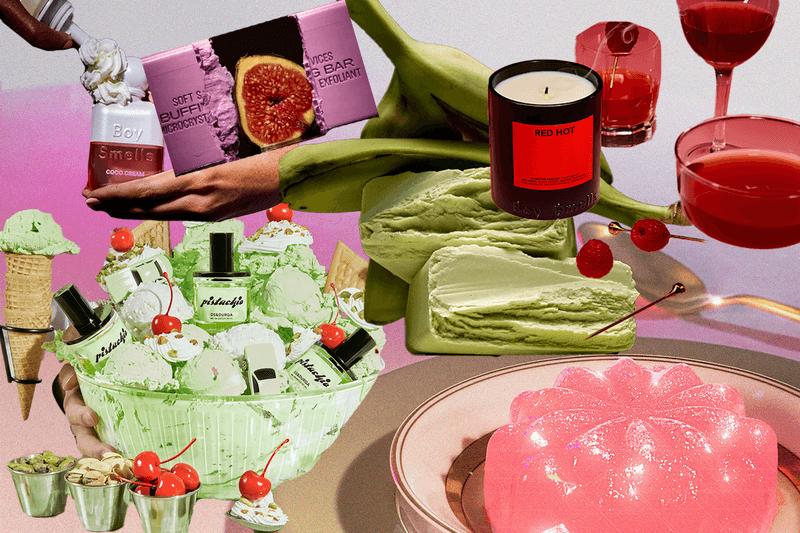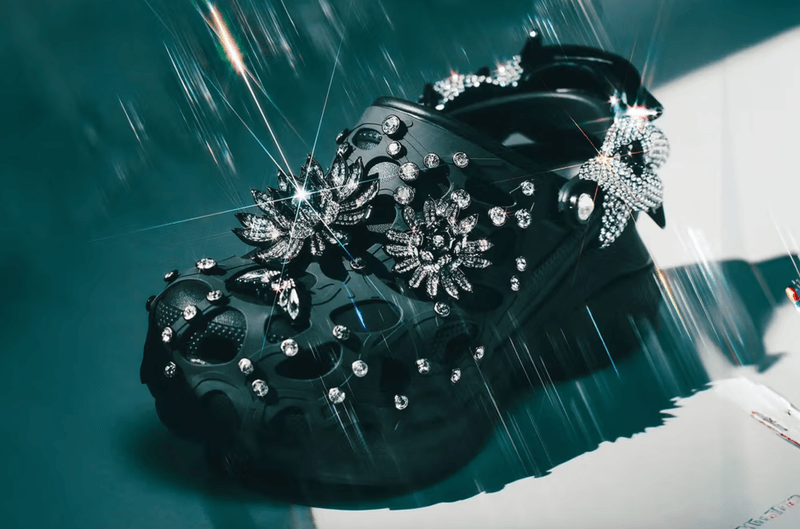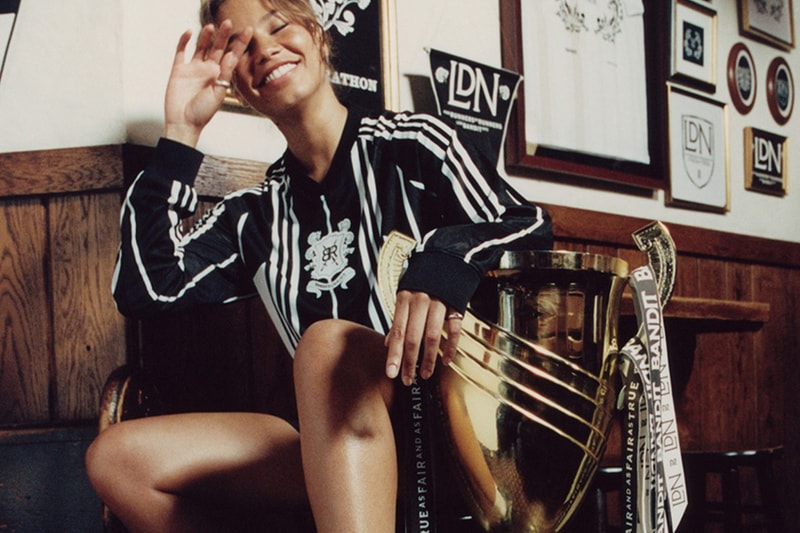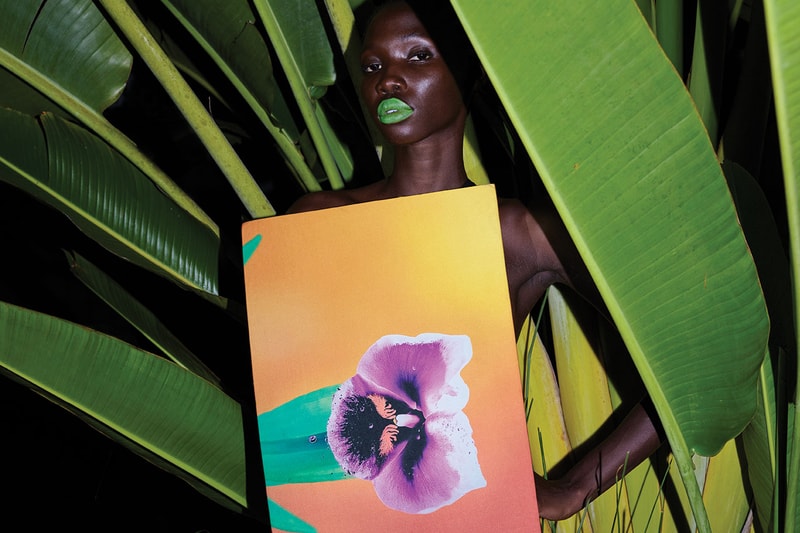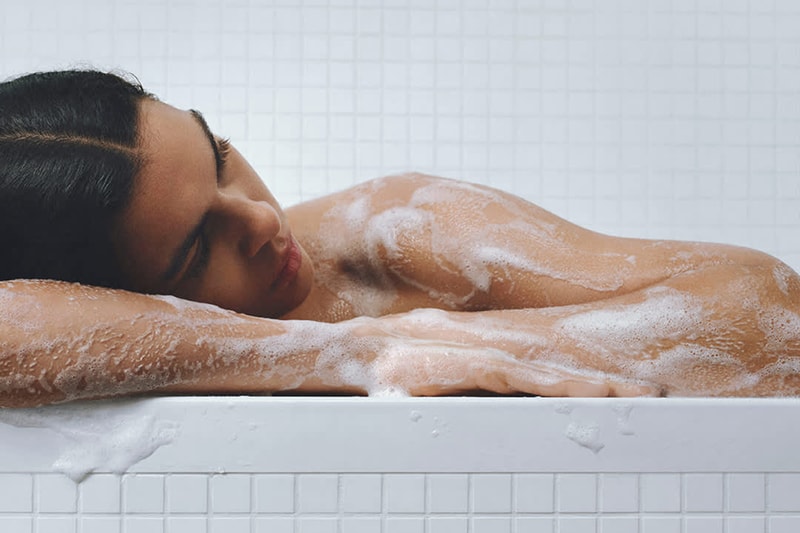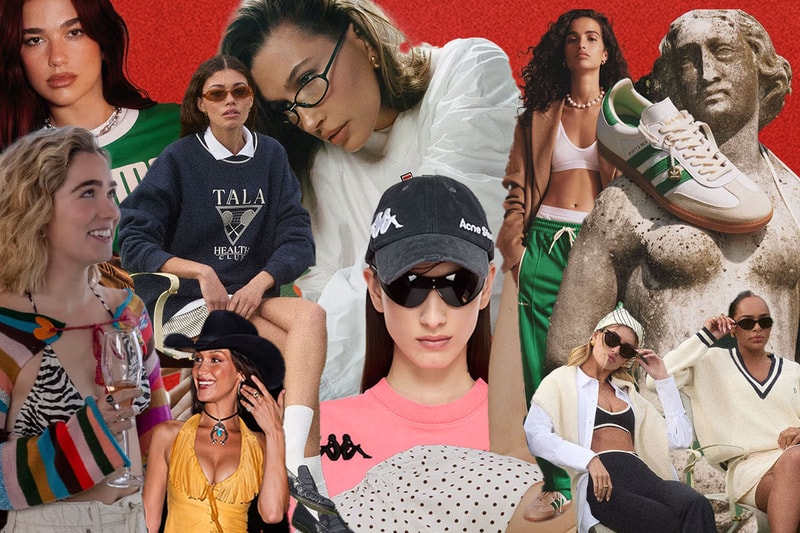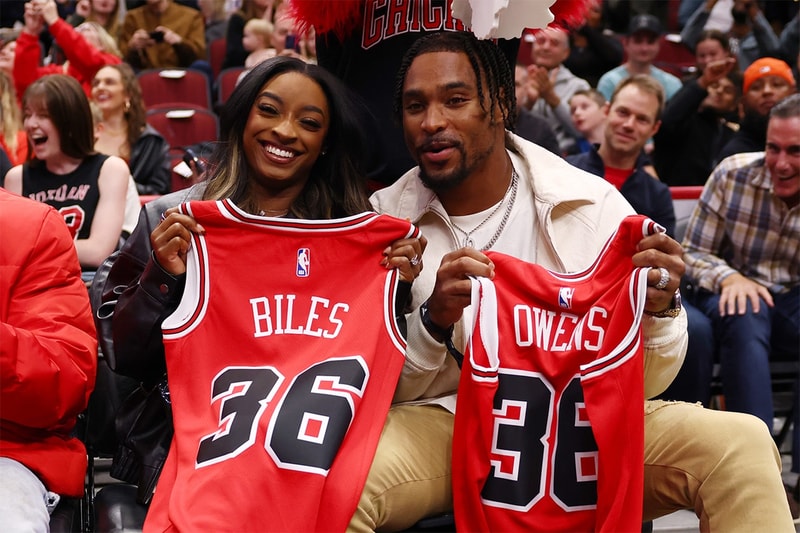Comedian Quinta Brunson Memes Well, We Swear
info@hypebae.com (HYPEBAE) Mon, 14 Jun 2021 HYPEBAE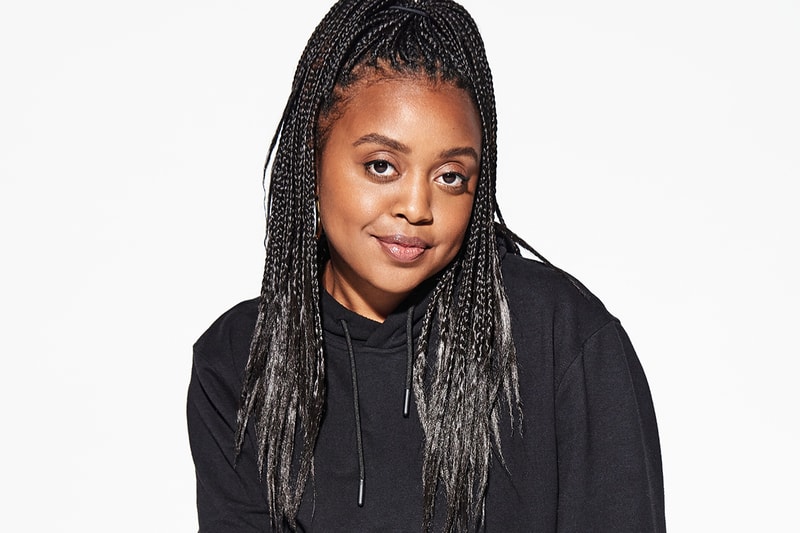
Quinta Brunson is everybody’s best friend -- at least on the Internet. After becoming a digital sensation with her viral Instagram video series, “The Girl Who’s Never Been on a Nice Date,” Brunson’s career trajectory has not slowed up in the slightest. From working as a producer and development partner at BuzzFeed Motion Pictures, to being a featured actress on HBO’s A Black Lady Sketch Show, it’s incredible how Brunson has the time to create content, stay hydrated, keep her mental health intact and manage to be that Internet queen. Did we mention that she’s launching her own book?
“I would like for some little Black girl somewhere in Philly, or a city like Philly, to be like, ‘Okay, I’m not alone in my ambitions, and here's a way someone did it,’ especially during the digital age,” Brunson told us about some of the motivating factors behind her book. Wanting to document her creative process through this ever-transformative digital age was crucial for Brunson’s narrative. “The last book that really did it for me personally was Issa [Rae]'s book, but even still that was the YouTube [era] and things have changed so much since then. It’s important to document our experiences through this social media, digital-sharing age.”
Actress and fellow author of We’re Going To Need More Wine Gabrielle Union dubs Brunson as a “friend, sister, lover, cool coworker we all wished we had,” while Insecure actress and author of The Misadventures of Awkward Black Girl Issa Rae chimed in to call the Buzzfeed alumna’s book a “gloriously insightful, gut-busting glimpse into the brilliant mind of the Internet’s golden child herself.” HYPEBAE spoke with the debut author herself about the importance of Black protagonists in literature and educational curriculum, her creative process and experience while putting She Memes Well together, as well as her top book recommendations for Black girls.
She Memes Well will be on sale and available for purchase on June 15.

Tell me about the inspiration behind the book. How did you really get into your creative groove and channel your energy towards book-writing?
It's not easy at all. When I first started, I was having a very hard time. I tend to tell either fictional stories or somewhat relatable stories to my real life, but still with heightened senses of comedy. Besides that, I would do one line or stand up about my life, not something as in-depth as a paragraph, let alone a chapter. That was the hard part for me -- saying I'm writing about my real life. It has to be expanded upon it. It can't be just one line. You have to turn those sentences into paragraphs, into chapters. I would say about a year and a half into doing it -- maybe later -- what really started to really get me in the groove was thinking about the books that honestly changed my life.
Two of them being Mindy Kaling's book and Tina Fey's book. If it weren't for those books, I might not have [gone] on to pursue the career that I pursued. Those books made me feel like this is possible. I was much younger and that was about a little bit over 10 years ago. I also had read Gabrielle Union's book, which was extremely relatable and made me feel less alone in some of the struggles I was dealing with at the time in the industry. By the time I read her book, I was already out here working, and I was like, “This is what it's about -- making whatever reader is reading it feel hugged, seen, at the very least giving them a learning experience about my honest and true life.”
How did the pandemic and everything that happened last year impact your creative process?
I was finishing the book as the pandemic started and things that seemed important or poignant no longer did, because the world was shifting at a rapid rate. Not only with the uprise, police brutality and what we saw with George Floyd, but also with COVID and people were dying left and right. Toward the end of my book experience, it was like, “What do I really want to say? This book could be real cutesy, or I could take this opportunity to really say what I think should be said.”
That shifted how I was treating my book toward the end, which I think readers will probably be able to tell. The whole last chapter of the book is about 2020, because I was writing through that and living through that, but it even made me go back to other chapters and say, ”Let's be more intentional with our words.” That affected my creative process across the board, the kind of projects I wanted to be a part of and what kind of things I wanted to make -- shows, movies, TV, everything. We have to take our moments to really say something of value. It doesn't have to be political or the most game-changing, but I want to have value to what I'm putting out there.
"[I wanted] to show people how I became who I am, regardless of how they think I became who I am, and ultimately, so that other kids, especially young Black kids from rough cities can feel inspired."
What's the difference between being your silly, best friend-type self on camera and in this digital space, as opposed to writing everything down as the stripped-down version of you in the book?
With a tweet, an Instagram video or story, or a TikTok, it's momentary usually. You can keep scrolling and then move on to the next thing. Everyone's attention span is so trash that it doesn't matter in the grand scheme of things. You put less thought into it, which can be both a good and bad thing as we've seen with social media. With the book, those words are going to be written forever in print. That was very hard for me because it's about my life specifically, and that proved to become frustrating. I'm putting it all out there.
I'm really telling people who I am and what my background is. I started to get worried I'd be canceled for this real experience that happened in my life or something, but I can't worry about that. This is my life. This is what my life is and what led me to become who I am now and in a way, I have to be. I have to accept it and I have to talk about it, because that was the idea for me of the book. Even the title She Memes Well, I drew from what memes are. It's defining moments that we share and that's what I wanted the book to be -- to talk about the things that I think define me the most. I wanted people to really know about my background, where I came from, my school, Philly. [I wanted] to show people how I became who I am, regardless of how they think I became who I am, and ultimately, so that other kids, especially young Black kids from rough cities can feel inspired.
When was your defining moment when you realized that there weren’t a lot of us Black folk in these literary pedestals that we’re taught in school? How do you see Black women shifting that now?
One of my favorite books was The Catcher in the Rye. It's so funny because that's a book that now everyone sh*ts on, but there's this weird cross-section with Black women in The Catcher in the Rye. Everyone thinks this kid is a little a**hole, but I think with a lot of us being Black women and how we have to move through the world, we have to have that kind of way of talking and speaking, that kind of heat. It's the same thing with Tony Stark. He has a weird cross-section of the Black women who loved him and were like, "That's my boy." I love the way he talks because I think it's a little bit of how we have to move through the world -- you either do, or you don't and you get trampled.
That was something interesting with me with books where I was like, “I wish there were more of those characters, but who actually were us.” Sure, my book is not a piece of fiction writing, but I think the least I could do is talk about the kind of person I am. Hopefully, it inspires some fiction-like writing in the future. The only real pointer for people for a long time was Issa's book Awkward Black Girl, but not all of us are that girl. This is why I think having options like Gabrielle Union's book and Phoebe Robinson's books means we get to see more versions of ourselves. I started to see it saying, “I kind of want to see, for lack of better words, [the] cocky way of being presented in a book.” I don't find myself to be cocky, but I'm not unconfident. I'm confident, I know what I'm doing, and I'd like to talk about that and talk about how that's okay, too.
"We have to take our moments to really say something of value. It doesn’t have to be political or the most game-changing, but I want to have value to what I’m putting out there."
How would you describe your growth since stepping on the scene at Buzzfeed?
The biggest thing for me, growth-wise, is when I first started, I was really focused on a certain version of success. I thought success looked [a certain way] and it was extremely career-focused. “I'm going to do this, be this, be famous, I'll be on SNL and then I'll be fine.” I've moved so far away from that -- work is still important to me, but work is more in the background. What is most important to me is nurturing my relationships with my fiancé, my friends, my family. If I can have success in those areas, then that feels like success to me.
The rest of this stuff is work. Not to say I don't care about it because I care about my work and I love my work, but I've moved away from American society's version of what success is when it comes to that work. Those things will come. I'm young, Lord willing, I'll be working a long time. All of the things that they tell you you need will come. The awards and whatever, blah, blah, blah. It's just not most important to me because I don't think that's really that healthy for me.
If you could tell your younger self any piece of advice about how to navigate life as a Black woman, as well as give her three book recommendations, what would you tell her?
I would tell her you're doing everything right. You're doing great. So proud of you. You're doing everything absolutely right. I do not have any advice for my younger self because my younger self did a really good job. My fiancé is laughing, but I did. I did really, really well so I'm so proud of past me from yesterday and the days before.
Book recommendations though, I would tell my younger self to read Gabrielle Union's book. That's a book I wish I'd read earlier. I don't know if I would've done things differently, but man, I just really appreciate her so much. I wish I had appreciated her as much as I do now and a little bit sooner. The Power of Habit [is] a really good book that I wish I remembered to read when I was younger, because it was just a game-changer. This book talked a lot about forming habits, breaking habits and why habits form.
There's a book called Save the Cat that I need to finish reading, but I think it tells people who want to write movies, shows and books everything they need to know about what makes something sellable. I think that's the disconnect for a lot for young creatives. They think, “I want to do this thing and it's going to be great." But you have to be able to sell what it is that you want to make. Do you know how to sell it in a room? Is it going to sell as a commercial? Is it going to sell on a billboard? Those factors are just important if you want to work in this industry. Because I came from an advertising background in college, I knew a lot of it naturally, which made it easier for me to sell. I want especially creatives of color to read it, because I think it's necessary to translate your idea when you're in a room not just to the people in the room, but [also] to audiences. You can have the best thing in the world, but if nobody wants to see it, it doesn't matter.
D’Shonda Brown is a freelance culture journalist, public speaker and mental health advocate based in Brooklyn, New York with a passion for mental health, social justice and uplifting the Black community through her writing. As a mental health advocate and suicide attempt survivor, in 2019, D’Shonda became Mental Health First Aid Certified for adults and children, and graduated from the Advocacy Ambassador Program by National Alliance on Mental Illness. D’Shonda is a proud Spelman College graduate and has interviewed notable names from Angela Rye and Soledad O’Brien to Chloe x Halle and Justine Skye.
You can connect with D’Shonda on her Instagram and website.
